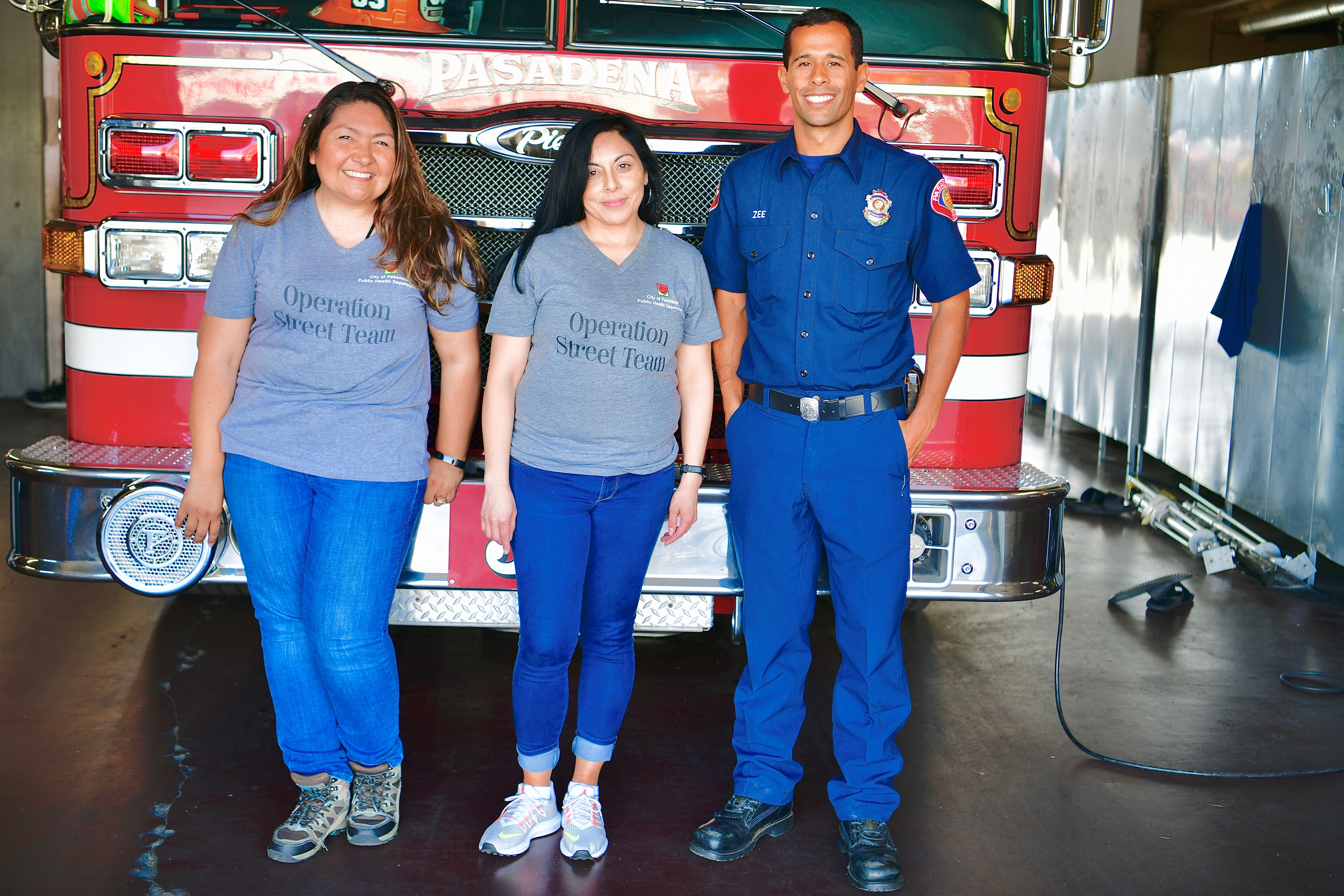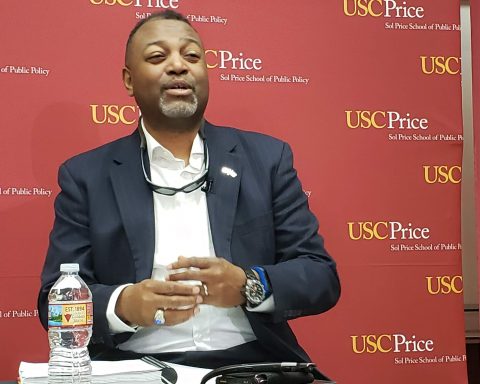Geneva Walker has lived on the streets for 12 years. She scheduled a meeting with the Pasadena Outreach Response Team (PORT) at the Lake Avenue overpass. As the team arrived, Geneva had an epiphany.
“ I want to get off these streets,” she said. “These streets are beating me up. I want to change my life.”
In deed this was an astonishing revelation to PORT because the meeting was supposed to be a routine check-in. For several months Geneva was an advocate for the program. She often encouraged those living on the streets of Pasadena to seek the assistance of PORT.
Geneva was kick her out of the house at age 21 along with her infant son. She remembers pushing him around the streets in a grocery basket.
Currently she has three children ages 21, 18 and 15.
Geneva says her life is broken.
A month ago she was hospitalized for injuries resulting in a concussion. Furthermore she suffers from bipolar disorder, high blood pressure and alcoholic addiction.
Situations like Geneva are beginning to grab some attention from city officials.
PORT could be key to rebuilding her life and self-sufficiency and a more modest solution to combat homelessness in Pasadena.
Individuals like Geneva often can’t access traditional healthcare. Their condition require urgent treatment or make it difficult for them to wait in a traditional doctor’s office with a lot of people.
PORT concerns itself with quality of life. Its relationship with each person is unique and organic.
In 2018, the City of Pasadena started its community paramedicine program. The team is comprise of a social worker, firefighter, nurse and case manager.
“We’re everything to these people,” says firefighter Tony Zee.
PORT is a collaboration between the Pasadena Fire Department, Pasadena Public Health Department and funded by Funded by the Sustain Abuse Mental Health Services Administration.
Since its inauguration in fall 2018, PORT has enrolled 107 individuals. In fact the services include outreach, intensive case management, basic health screenings, linkage to housing programs and other supportive services.
Division Manager Angelica Palmeros is the architect of PORT. She says, “assisting the fire department and bringing down the 911 calls” is the primary goal of her team.
Palmeros suggests the grant money “delivers the service for the client” and shifts the perception of how first responders approach the homeless population. She adds, “PORT provide a network of support these individuals don’t have.”
According to the City of Pasadena 2018 Homeless Count 677 people experienced homelessness. There are a variety of things that contribute to homelessness. A shift in demographics not only in regard to gender but also age is also a key factor.
Michael Johnson, director of Pasadena’s Public Health Department, said “homelessness is a public health issue.”
Pasadena Fire Chief Bertral Washington indicates the goal from the fire department’s perspective is trying to make a positive difference in the homeless population. “It’s normal for fire fighters to be part of the solution to the homeless crisis in Pasadena.”
The PORT crew follows up with patients to help curb subsequent unplanned ambulance usage, reduce superusers, and make emergency resources more available.
PORT aims to reduce emergency call volume by applying a fire prevention model to an ever-increasing emergency call volume. It allows first responders to share data and experiences with public health clinicians.
Chief Washington concludes “if PORT can decrease the demands for our services we save the taxpayers money.”
For more information on PORT contact the Pasadena Public Health Department Social and Mental Health Division at (626) 744-6339.






